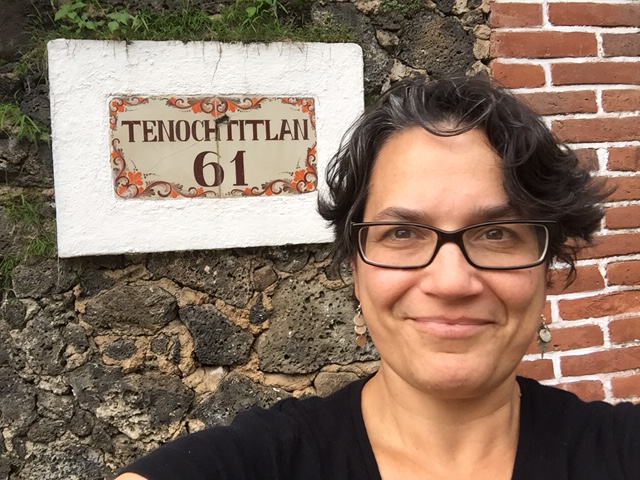Julia E. Rodriguez is an associate professor at the University of New Hampshire. She lives in Durham, New Hampshire, and has been a member since 1997.
Website: http://cola.unh.edu/faculty-member/julia-rodriguez
Alma mater/s: BA (liberal arts), New School for Social Research, 1989; MA (sociology and historical studies), New School for Social Research, 1992; PhD (history), Columbia University, 2000
Fields of interest: Latin America and the Caribbean, science and medicine, gender
Describe your career path. What led you to where you are today? I knew from my first year of college that I wanted to be a professor. My sophomore year at the New School, I took a class on the Darwinian Revolution taught by a young scholar named Robert Proctor, who is now a major figure in the history of science. That class and the idea that one could study science for its social and historical significance really captured my imagination. At the same time, I was also taking a lot of sociology classes. I ended up doing a master’s in sociology with a focus on historical sociology. Ultimately, when it came time to decide on doctoral programs, I went for history because I love stories. I still enjoy theory, but I prefer to tell stories about ideas. I chose to focus on Latin America within the history of science because I had the ability to speak and read Spanish and had family contacts in the region.
What do you like the most about where you live and work? I love living in the Seacoast region of New Hampshire. We enjoy year-round natural beauty, including ocean, rivers, forests, and mountains. At UNH, I really like teaching at a public institution with a commitment to accessible education. It is also fun to work at a Land-Sea-Space grant institution, which has a wide range of scientific fields in addition to Liberal Arts fields. Finally, our history department is great. I have wonderful colleagues.
What projects are you currently working on? I am writing a book about late 19th-century Americanist anthropology. Like an archaeologist, I am excavating the field’s foundations, including its practitioners’ main concepts, methods, and evidence, as well as their relevance to social policy.
Have your interests evolved since graduation? If so, how? Not much! My dissertation and first book were on medicine, public health, and policy in late 19th-century Argentina. Underlying all of my work is a desire to explain racial thinking and other forms of essentialism in the sciences.
What’s the most fascinating thing you’ve ever found at the archives or while doing research? My most exciting moment in the archives occurred as a graduate student doing research in La Plata, Argentina. The archivist permitted me to leaf through some uncatalogued police archives. It was there that I discovered material to write a chapter on the history of fingerprinting in that country. Seeing those papers, I had a feeling I could tell a great story, and I think I did.
Is there an article, book, movie, blog etc. that you could recommend to fellow AHA members? There are so many good books and movies but the ones I probably recommend the most are Annette Gordon-Reed’s The Hemingses of Monticello and the movie I, the Worst of All, which is about Sor Juana de la Cruz.
What do you value most about the history discipline? I value how historians seek out what is unique about each time and place, and how we encourage empathy between people today and those from past eras.
Why is membership in the AHA important to you? I belong to a few professional organizations, but my primary identity is as a historian. I love reading and talking about all areas of history and I feel a kinship with others who prioritize this way of thinking about the human condition.
Do you have a favorite AHA annual meeting anecdote you would like to share? Back in 1999, when I was still writing my dissertation, the New York Times reported on the AHA meeting and mentioned some “arcane” topics presented there, including a paper I had given on the history of fingerprinting in Argentina! A few years later, that paper was published in the American Historical Review.
AHA members are involved in all fields of history, with wide-ranging specializations, interests, and areas of employment. To recognize our talented and eclectic membership, AHA Today features a regular AHA Member Spotlight series.
This post first appeared on AHA Today.
Tags: AHA Today Member Spotlight Latin America History of STEM
Comment
Please read our commenting and letters policy before submitting.







